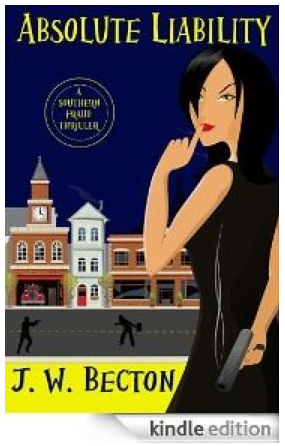Richard Bard’s Brainrush:

Part I
“The fear of death is the most unjustified of all fears, for there’s no risk of accident for someone who’s dead.”
Albert Einstein
Chapter 1
Veterans Administration Medical Center
Santa Monica, California
Jake Bronson spent the past two weeks preparing to die. He just didn’t want to do it today trapped in this MRI scanner.
The table jiggled beneath him. He was on his way into the narrow tube like a nineteenth-century artillery round being shoved into a cannon. The glassy-eyed gaze of the bored VA medical technician hovered over him, a yellow mustard stain on the sleeve of his lab coat.
Comforting.
“Keep your head perfectly still,” the tech said.
Yeah, right, like he had any choice with the two-inch-wide strap they had cinched over his forehead. Another wiggle and the lip of the tunnel passed into view above him. Jake squeezed his eyes closed, anxious to ignore the curved walls sliding by just an inch from his nose. Three deep breaths and the table jerked to a stop. He was in, cocooned head to toe. He heard the soft whir of the ventilation fan turn on at his feet. The breeze chilled the beads of sweat gathering on his forehead.
The tech’s scratchy-sounding voice came over the speakers in the chamber. “Mr. Bronson, if you can hear me press the button.”
A panic switch. Hadn’t he been in a constant state of panic ever since the doctors told him his disease was terminal? He’d agreed to this final test so he’d know how many months he had left to live, to make at least one positive difference in the world. After today, no more doctors. After today, he’d focus on living. Jake pressed the thumb switch gripped in his hand.
“Got it,” the tech said. “If it gets too confining for you in there, just press it again and I’ll pull you out. But remember, we’ll have to start all over again if that happens, so let’s try to get it right the first time, okay? We only need thirty minutes. Here we go.”
Jake’s thumb twitched over the panic button. Crap. He already wanted to push it. He should have accepted the sedative that they offered him in the waiting room. But his friend Marshall had been standing right there, chuckling under his breath when the tech suggested it.
Too late now.
Why the hell was this happening to him again? Cancer once in a lifetime was more than enough for anyone. But twice? It wasn’t right. He wanted to lash out, but at what? Or whom? This morning he’d smashed the small TV in his bedroom over a movie trailer for Top Gun 2. “Coming next fall.” He hated that he was going to miss that one.
The chamber felt like it was closing in on him. A claustrophobic panic sparked in his gut, a churning that grew with each pound of his heart, a hollow reminder of the crushing confines of the collapsible torture box he’d spent so many hours in during the Air Force’s simulated POW training camp.
Come on, Jake, man-up!
Thirty minutes. That was only eighteen hundred seconds. He clenched his teeth and started counting. One, one thousand, two, one thousand, three-
The machine started up with a loud clanking noise. The sound startled him and his body twitched.
“Please don’t move, Mr. Bronson.” The tech was irritated.
The tapping noise sounded different than he remembered from the MRI he had ten years ago. “Lymphoma,” the flight surgeon had said. “Sorry, but you’re grounded.” And just like that, his childhood dreams of flying the F-16 were cut short on the day before his first combat mission. The chemo and radiation treatments had sucked. But they worked. The cancer was forced into remission-until two weeks ago, when it reappeared in the form of a tumor in his brain.
The annoying rattle settled into a pattern. Jake let out a deep breath, trying to relax.
Eight, one thousand, nine, one thousand-
Suddenly, the entire chamber jolted violently to the right, as if the machine had been T-boned by a dump truck. Jake’s body twisted hard to one side, but his strapped head couldn’t follow. He felt a sharp pain in his neck and the fingers on his left hand went numb. The fan stopped blowing, the lights went out, and the chamber started shaking like a gallon can in a paint-store agitator.
Earthquake!
A keening whistle from deep within the machine sent shooting pains into Jake’s rattling skull. A warm wetness pooled in his ears and muffled his hearing.
He squeezed down hard on the panic button, shouting into the darkness, each word trembling with the quake’s vibration. “Get–me–out–of–here!”
No one answered.
He wedged his palms against the sidewalls to brace himself. The surface was warm, getting hotter.
The air felt charged with electricity. His skin tingled. Sparks skittered along the wall in front of his face, the first sign in the complete darkness that his eyes were still functioning. The acrid scent of electrical smoke filled his nostrils.
Jake’s fists pounded the thick walls of the chamber. He howled, “Somebody-”
His body went rigid. His arms and legs jerked spasmodically in seizure, his head thrown back. He bit deep into his tongue and his mouth filled with the coppery taste of blood. Sharp, burning needles of blinding pain blossomed in the hollow at the back of his skull, wriggling through his brain. His head felt like it was ready to burst.
The earthquake ended as abruptly as it started.
So did the seizure.
Jake sagged into the table, his thumping heart threatening to break through his chest.
Faint voices. His mind lunged for them. He peered down toward his toes. A light flickered on in the outer room. Shadows shifted.
The table jerked beneath him, rolling out into the room. When Jake’s head cleared the outer rim of the machine, two pairs of anxious eyes stared down at him. It was the tech and Jake’s buddy, Marshall.
“You okay?” Marshall asked, concern pinching his features.
Jake didn’t know whether he was okay or not. The tech helped him sit up and Jake spun his legs to the side. He turned his head and spat a bloody glob of saliva on the floor. Holding the panic switch up to the tech, he said, “You may want to get this thing fixed.”
“I’m s-so sorry, Mr. Bronson,” the tech said. “The power went out and I could barely keep my balance. I-”
“Forget it,” Jake said, wincing as he reached over his shoulder to massage the back of his aching neck. He gestured to the smoking chamber. “Just be glad you weren’t strapped down inside that coffin instead of me.” He slid his feet to the floor and stood up.
The room spun around him.
He felt Marshall’s firm grip on his shoulders. “Whoa, slow down, pal,” Marshall said. “You’re a mess.”
Jake shook his head. His vision steadied. “I’m all right. Just give me a second.” He took a quick inventory. The feeling had returned to his fingers. Other than a bad neck ache, a sore tongue, and a tingling sensation at the back of his head, there was no major damage. Clutching the corner of the sheet on the table, he wiped at the wetness around his ears. The cotton fabric came away with a pink tinge to it, but no more than that. He stretched his jaw to pop his ears. His hearing was fine.
Using the small sink and wall mirror by the door, Jake used a damp paper towel to make sure he got all the blood from his bitten tongue off his lips and chin. His face didn’t look so bad. The tan helped. His hair was disheveled, but what the hell, sloppy was in, right? And if he could get at least one good night of sleep, his eyes would get back to looking more green than red. It was a younger version of his dad that stared back at him. He sucked in a deep breath, expanding his chest. Six foot two, thirty-five years old-the prime of his life.
Yeah, right.
He tried to sort out just what had happened in that chamber, but the specifics were already hazy, like the fading details of a waking dream. He threw on his T-shirt and jeans, then grabbed his blue chambray shirt from a spike by the door and put that over the tee. Slipping on his black loafers, he glanced back at the donut-shaped ring of the machine that had almost become his tomb. The seam that traveled around it was charred, faint wisps of smoke still snaking into the air.
“Never again,” Jake muttered.
On the way out, a pretty nurse grabbed Marshall’s hand and slipped him a folded piece of paper. Jake stifled a smile. Ten to one it was her phone number, though the concerned look Marshall exchanged with her suggested otherwise.
He stuffed the paper in his pocket, turned his back on her with a friendly wave, and followed Jake out the door. “Dude, you sure you’re okay?” he asked.
“Sure.”
But an odd, sporadic buzzing in Jake’s head told him something was very different.
Chapter 2
Redondo Beach, California
Jake slouched forward on the edge of the patio chair on his backyard deck, hands clenched, elbows propped on his bare knees protruding from his favorite pair of tattered jeans. The midafternoon sun was finally beginning to burn through the clinging marine layer, with patches of sunlight punching holes through the clouds and warming his skin. He drew in a deep breath of moist salt air, his eyes half closed. One hundred feet below his perch, a lone surfer paddled through the breakers. The soft rumble of the waves was a salve on Jake’s nerves. Seagulls drifted overhead, seemingly suspended in the gentle offshore breeze.
Marshall’s grinning face popped through the small kitchen window. In spite of the slim wireless earpiece that had become a permanent fixture on his left ear, girls seemed to flock to his dark features, though Marshall had never exhibited much of a talent in figuring out how to deal with them. His genius was with computers, not girls-a point that Jake often ribbed him about.
“You better put beer on the shopping list,” Marshall said. “These are the last two. And I threw out your milk. It expired two weeks ago, dude.”
Jake shrugged. His sixty-year-old two-bedroom Spanish stucco home wasn’t anything to brag about. But it was the one and only place he had planted roots after a lifetime of bouncing from one location to another, first as a military brat and later as a pilot in the Air Force. The panoramic coastal view stretched all the way from Redondo Beach to Malibu.
The porch screen door slammed closed as Marshall walked over and handed him a beer. “If you have to keep every window in the whole house open twenty-four/seven, you’re going to have to start wiping the counters once in a while. It looks like a college dorm room in there.”
Jake ignored the comment. He liked the windows open. Dust was the least of his problems.
Marshall cut to the chase. “You gonna reschedule the MRI?”
Jake shook his head. “No way.”
“You’re not worried about another shaker, are you? After a couple days of aftershocks, the tectonic pressure will be relieved and that’ll be the end of it, at least for a while.”
Jake recalled the radio broadcast on the ride home. The earthquake had been a 5.7, centered just off the coast, but it had been felt as far south as San Diego and as far north as San Luis Obispo. After the initial jolt, the rolling shaker that followed had lasted only ten or fifteen seconds. Damage had been light, injuries minor.
“No more MRIs. No more doctors,” Jake said.
“But you have to, right?” Marshall left a trail of sneaker prints as he paced across the remnants of dew that coated the wooden deck. He wore a white, button-down shirt, khaki Dockers, and his trademark multicolored Pro-Keds high-tops. “I thought it was the only way to identify how far the disease had spread. You could die, man.”
“Yeah, well, ‘could die’ is better than ‘would die.’ So, forget about it.” Jake wished he’d never said anything to Marshall about the tumor that drove him to the MRI in the first place. Marshall was the only one of his friends and family who knew. Even so, Jake still hadn’t told him it was terminal. With only a few months to live, the last thing he wanted was to be surrounded by pity. He’d had enough of that the first time around ten years ago.
His mom’s uncontrolled sobbing was the first thing he’d heard when he regained consciousness after the exploratory “staging” surgery. Dad seemed okay, but that’s because he kept it bottled up as usual. Jake felt their fear, knew they were both petrified that they might lose their second son, too. When his older brother died in a motorcycle accident, grief had shaken the family to the core. Now it was Jake causing the grief.
Months of chemo and radiation therapy had followed. His weight dropped from two hundred down to one forty in less than six weeks. He’d lost all his hair. But he hadn’t quit, on himself or his family. Halfway through the treatment, Dad had died of a heart attack. A broken heart, Jake remembered thinking-his fault. That’s what unbridled grief did. His mom would be next if he didn’t pull through. His little sister would be all alone. Jake couldn’t let that happen. He’d beat it. He had to.
In the end, the aggressive treatment regimen had defeated the disease. The war was won-at least the physical part of it. His health improved and he became the anchor that allowed his mom and sister to pick up the pieces of their lives.
No, Jake didn’t want to be surrounded by pity again. He couldn’t handle it a second time around.
Marshall paced back and forth in front of the rail, his fingers unconsciously playing over the smooth corners of the iPhone snapped into a holster on his belt. He took another slug from his bottle of beer. “Dude, at least tell me what happened when you were inside that machine. You’ve barely said a word since we hightailed it out of there.”
Jake still couldn’t remember the sequence of events that actually occurred while he was in the MRI machine, but he recalled the resulting sensations all too clearly: heart pounding, shortness of breath, helplessness, uncontrollable panic-feelings he wanted to banish, not talk about. “Something weird happened to me. I’m still trying to sort it out. I freaked in there. A full-fledged, your-life-is-on-the-line panic, like when your chute doesn’t open and the ground is racing up at you.”
His voice trailed off. “The next thing I can remember is the news talk-radio show in the Jeep. The announcer was reeling off the game scores, and somehow that relaxed me. I saw each score as a different image in my mind. It’s crazy, but instead of numbers I saw shapes.” Jake closed his eyes for a moment. “I can still recall every one of them, and the scores that went with them.”
“Of course,” Marshall said.
“No, really, Marsh, I’m serious.” Jake closed his eyes and recited,
“Boston College over Virginia Tech, 14-10; Ohio State beat Penn State 37-17; USC-Oregon, 17-24; California-Arizona State, 20-31; West Vir-”
“Sure, dude. Here, it’s my turn.” In a mock sports announcer voice, Marshall said, “West Virginia-Connecticut, 15-21; Texas A&M-Missouri, 14-3.”
“Cool it,” Jake said, “West Virginia didn’t play Connecticut; they played Rutgers and trounced them 31-3. And Connecticut played South Florida and beat them 22-15.”
Marshall took a hard look at his friend, as if he was searching for a sign that signaled he was joking around. Jake accepted the stare with a determined clench of his jaw. To him, this was anything but a joke.
Shaking his head, Marshall pulled the iPhone out of his belt holder, his index finger tapping and sliding along the surface of the touch screen. “Okay,” he said. “Let’s do this again.”
Jake started over, but recited more slowly this time so Marshall could confirm each score. Following the first several answers, Marshall’s surprised look shifted to a grin. After hearing all thirty-one scores, he looked up from the small screen. “Son of a bitch.”
J
ake smiled. “See what I mean? I’m not even sure how I did that. Pretty cool, huh?”
“Sweet is what it is. Kind of reminds me of Dustin Hoffman in that old movie Rain Man.”
Jake remembered the character. “He was really good at math, wasn’t he? He did it all in his head. I think I can do that, too.”
“Like simple math or complicated equations?”
“I’m not sure.”
Marshall brought up the calculator on his iPhone and tapped the screen. “Okay, what’s 4,722 times 1,230?”
Jake didn’t hesitate. “Five million eight hundred eight thousand sixty.”
“Suuuuu-weet!” Marshall tapped a few more keys. “Give me the square root of 78,566.”
“To how many decimal places?”
“You’re kidding, right?”
Jake shook his head.
Marshall studied the long number stretched across the screen, his lips moving as he counted the digits. “Twelve.”
Jake closed his eyes and rattled out the answer. “It’s 280.296271826794.”
“You have got to be abso-friggin’ kidding me.”
“Did you just say abso-friggin’? What a geek.”
“Shut up and tell me how you did it.”
“It’s easy, Marsh. The numbers feel like shapes, colors, and textures, each one unique. The shapes of the original numbers morph into the answer in my head. All I have to do is recite it.”
Marshall’s hands danced in a blur over the tiny screen. He talked while he worked. “Jake, I’ve heard of this before. How head injuries sometimes give people unusual new abilities.” His fingers paused and he handed the device to Jake. “Here, read this.”
Jake scanned an article about Jonathon Tiel, a genius savant who developed his incredible mental abilities after a car accident. He developed a gift for memorization, mathematical computations, and languages. He could recount the numerical value of pi to over twenty thousand digits without a single mistake. He spoke fifteen languages fluently, and it was reported that he learned Swahili-considered one of the most complicated languages in the world-in less than a month.
Tapping the screen, Jake opened the link to another article. His eyes blinked like a camera shutter and he tapped the screen again. A second later, another tap, and then another. He was amazed at the speed that his mind soaked in the information.
Jake wondered how in the hell he was doing it. It was as if each page he read was stored on a hard drive deep in his brain. He could pull each one up just by thinking about it. But what was going to happen when the drive reached capacity? When that happens on a computer, things go wrong.
The blue screen of death.
“Are you actually reading the pages?” Marshall asked.
Jake nodded but kept his eyes glued to the small screen as he sped from one article to the next, each one describing incredible mental feats, artistic talents, and even enhanced physical attributes, all exhibited by ordinary people after various types of head trauma. Marshall watched for a moment from over his shoulder. The images shifted at an incredible speed as Jake absorbed the information on the screen. Marshall shook his head. He sat down on a chair beside him, propped his Keds on the deck rail, and nursed his beer.
After four or five minutes, Jake sank back in his chair. He stared at a contrail high over the water, thinking back.
Two years after his first illness seven years ago, he’d moved to Redondo Beach to take a flight instructor position at Zamperini Field in Torrance. It wasn’t a high-paying job, but it got him in the air. He was a natural stick, and advancing to the lead acrobatic instructor position had taken only a few months. There’s nothing quite like sharing that first-time thrill with a sky virgin. And besides, hot-doggin’ in an open-cockpit Pitts Special was about as close as he could get to the rush he’d felt when he was screaming across the sky in his F-16. The crazier the stunt, the more he liked it. Sure, his boss said he sometimes skirted the edge of flight safety parameters, but Jake had an uncanny knack for knowing just how far he could push it without losing it. Of course, the inverted fly by over a packed Hermosa Beach crowd on the Fourth of July wasn’t his smartest move. He’d almost lost his license over that one, until Marshall hacked into the FAA database and inserted a post-dated permit into the system.
All that had changed when he met Angel.
She’d bounced in the front door of the flight school amidst a circle of girlfriends. They’d dared her to take an acrobatic orientation flight and she wasn’t about to back down. She sized Jake up with a twinkle in her eye that stood him back on his heels. With hands on her hips she gave him a spunky attitude that shouted, “You can’t scare me.” Between that, and a contagious smile that melted his heart, Jake had all the excuse he needed to show off.
But once in the air, Angel’s false bravado turned quickly to panic when Jake followed a snap roll with a split-S that came uncomfortably close to the ground. She lost consciousness from the intense maneuver. When she came to, she was violently sick in the cockpit. Jake couldn’t forgive himself. He knew better. He spent the next several days trying to make it up to her with apologies, flowers, and finally dinner. They were married a year later. Their daughter Jasmine was born eighteen months after that. Jake had never been happier.
Until a year ago, when a drunk driver killed them both and ripped his heart to shreds.
Jake had little doubt that the pain of that loss is what led to his cancer coming back–unbridled grief.
The airliner overhead disappeared from view-the dissipating contrail the only evidence of its passing-heading due west over the ocean. Next stop, New Zealand? Fiji? Hong Kong? Places that had been on their vacation list. Places neither of them would ever see.
“You with me, pal?” Marshall asked, reaching over to take the iPhone from Jake’s hand.
“For now.”
Marshall hesitated, apparently unsure of what to say.
“No worries,” Jake said with a somber grin. He clinked his bottle of Sierra Nevada Pale Ale against Marshall’s, escaping into the marvel of his new mental abilities. “What the hell, man? I’m a bona-fide freak of nature.”
Marshall downed the rest of his beer in salute.
“Something strange happened to my brain in that MRI, Marsh. It changed me. And you know what? It might be just what the doctor ordered.”
Jake rubbed his temples.
“You need some downtime, or what?” Marshall asked.
Determined to ignore the sudden buzzing that crawled from the back of his neck up across his scalp, Jake said, “No. I’d just as soon head out and meet Tony at the bar to watch the game like we planned. But remember, no more talk about my health. Tony still doesn’t know. Got it?”
Marshall’s lips thinned, but he nodded.
Chapter 3
Venice, Italy
Luciano Battista soaked in the view through the triple arched windows overlooking the sparkling waters of the Grand Canal. The late afternoon sun reflected off the pastel facades of the centuries-old palaces across the water that were pressed up against one another like books on a shelf. A tourist-filled vaporetto motored up the canal. A row of shiny black gondolas tied at their posts bounced and swayed in its wake. He caught the faint scent of fish drifting up from the open-air market around the corner.
Battista admired the scene from his richly paneled private office on the top floor of the six-hundred-year-old baroque palazzo. The magical floating city drew tourists from around the world hoping to get a taste of its mystery and romance, knowing little of its dark historical underpinnings of violence, greed, and secrecy. It had become his European headquarters seven years ago.
He had made a point of being meticulous in his efforts to blend into the upper-crust society of the ancient city, to perfect his image of sophistication and elegance. Today he wore his steel-gray Armani suit and Gucci shoes. He knew the outfit complemented his dark eyes, olive complexion, neatly trimmed black Vandyke beard, and thick stock of salon-styled hair that left no trace of his underlying scatters of gray. All part of his refined disguise.
Turning his back on the view, he moved in front of his hand-carved, cherrywood desk, his attention on the bank of thirty-inch LCD screens that covered the wall in front of him.
The subject on the central monitor had been recruited two years ago, taken to Battista’s hidden underground complex deep in the mountains of northern Afghanistan. He’d completed his training and passed all the medical tests before he had been flown here a week ago to receive his implant. The young man sat at a small dinette table absorbing the pages of a technical journal. The electrical diagrams and parts schematic he drew on the tablet beside him indicated a thorough understanding of the information he was reading.
The implant was working.
“It’s been seven days, Carlo,” Battista said.
“Si, signore.” Carlo sat in the winged, leather reading chair next to Battista’s desk, wearing loose-fitting khaki slacks and an open-collared white shirt, its sleeves rolled up. He absently trimmed his fingernails with the razor-sharp, five-inch blade of his automatic knife. His weathered hands and thick forearms were crisscrossed with a patchwork of scars. The rich olive skin of his bald head was so shiny it looked waxed and polished. A deeply furrowed scar slashed diagonally through one bushy eyebrow, its arc continuing into his cheek, pulling his eyelid down into a droop and giving his dark face a constant scowl.
The subject on the monitor closed the technical journal and picked up his notes, scanning his completed drawing. With a satisfied grin, he looked into the camera. In perfect English with an accent that hinted of Boston, he said, “Well, how do you like that? All I need now is a Home Depot, a Radio Shack, and about twelve hours of quiet time.” He flicked open the fingers of his fist. “And ka-boom! I’ll give you a makeshift device no larger than a backpack that can obliterate half a city block. Or, if you prefer a more subtle approach, how about a cigar-sized aluminum cylinder that can be slipped into the plumbing at the neighborhood school to release a tasteless delayed-reaction poison at the water fountains? Not bad, huh?”
Battista nodded. This one was truly remarkable. Before the implant, the man’s English was broken and heavily accented. Now he had an astonishing command of the language that included the extended a’s and missing r’s prevalent in the blue-collar crowds of south Boston. With his surgically softened features, and his dyed light-brown hair, he could easily pass as a beer-drinking Red Sox fan from Hyde Park-the last person one would suspect as a terrorist cell leader on a jihad to incinerate Americans.
Carlo stood to get a better look at the monitor. Next to Battista’s lean frame, he looked as sturdy as a fire hydrant. “Is he stable?”
“This one has lasted days longer than most of the others. The team was quite confident that they solved the problem.” And they had better be right, thought Battista. This was the thirty-seventh subject to receive the experimental transcranial magnetic stimulation (TMS) implant. The first dozen or more trials were utter failures; the subjects died immediately after the procedure. But they had learned something new from each variation in the tests, and the thirteenth subject lasted for nearly twenty hours, during which time his mind exhibited extraordinary savant-like abilities. That was eighteen months ago. Each of the subjects since then had lasted longer. But only two of them were still alive after several months, one just a boy. None of the others had lasted more than four days after receiving the implant. Thirty-four loyal subjects dead. Battista would not allow their sacrifice to be in vain.
He continued to monitor the screen, hopeful. This subject had lasted a week, thanks to clues they had gleaned after studying the brain of another one of the autistic children. Unfortunately, the exam had proved fatal to the child, as had happened before. Battista knew that such sacrifices were unavoidable, but it still tore at his heart, reminding him of his own son.
“Imagine it, Carlo, an army of our brothers able to perfect their command of the English language in less than a week, to adopt its nuances, its slang, its mannerisms.”
Battista clenched his fists as he continued. “Let the Americans use their racial profiling to try to stop us. These new soldiers will talk circles around their underpaid and complacent screening employees. Their confidence is their weakness, Carlo. Their belief that we are a backward people is the blindfold that will bring them to their knees.”
Carlo twitched his thumb, and the knife blade snapped back into its slender, contoured handle. He slid the knife into his pocket.
“Believe it, Carlo, for it will soon be upon us. One final hurdle and our research will be complete. Then, within a few months we will introduce more than one hundred such soldiers into America, any one of whom will be capable of unleashing his own personal brand of terror without guidance from us, or help from the others.” He took a step forward and focused on the young man on the screen. “Here is our future, a single soldier of Allah with the mind of Einstein, multiplied by a hundred, and later a thousand.”
It happened suddenly. The subject on the monitor leapt up from the table. The chair behind him fell backwards. His hands shot up, palms pressing hard against his temples as if to keep his head from exploding. His eyes squeezed closed, his mouth agape in a silent scream. The young man’s body twisted violently and he fell hard to the floor, curled into a fetal position, shaking uncontrollably. After several seconds, there was one final spasmodic jerk, and he lay still.
Battista didn’t allow the flush of anger to overtake him. Instead, a dark calm spread over him.
Carlo knew to keep his mouth shut.
Battista’s eyes never left the monitor. After several moments three men in white lab coats stepped into view and stood in a semicircle around the body, facing the camera, shifting uneasily.
One of the doctors said, “We are close, signore. Very close. But I’m afraid we’ll need to examine another autistic subject before the next implant.”
Battista was irritated by the doctor’s cavalier attitude regarding an exam that would surely prove fatal to the child subject. But he chose to ignore the man’s absence of compassion, at least for now. The more serious problem lay in the fact that finding the ideal set of traits in a candidate was getting more and more difficult.
They were running out of children.


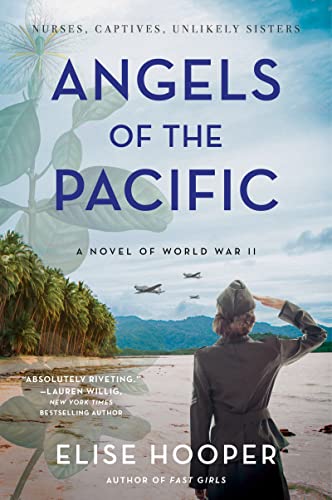
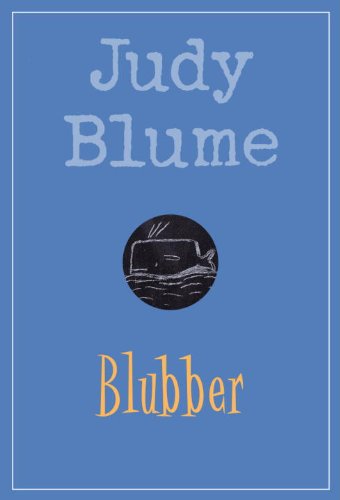
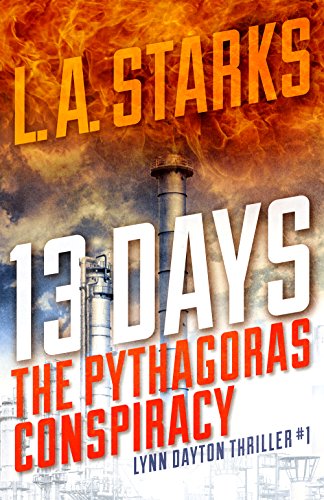
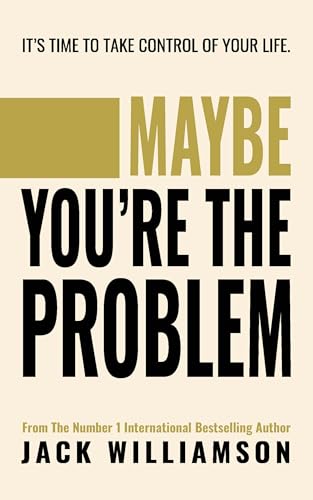
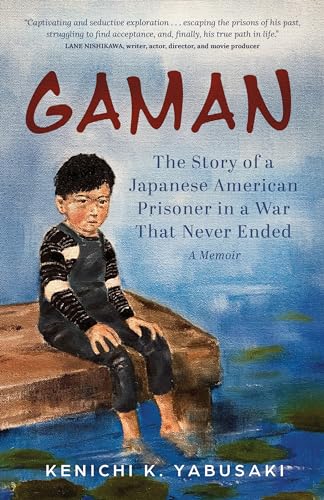

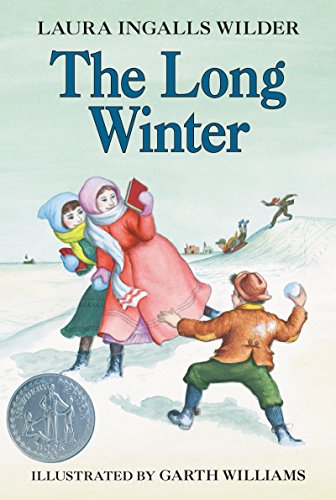
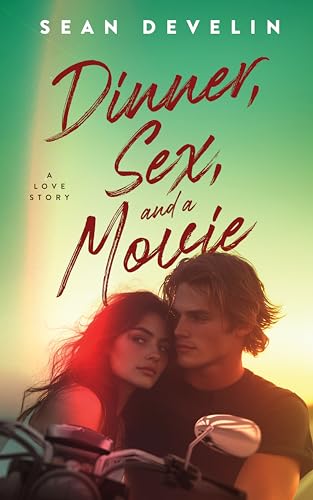

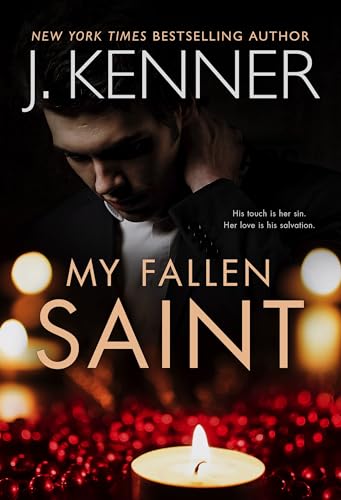
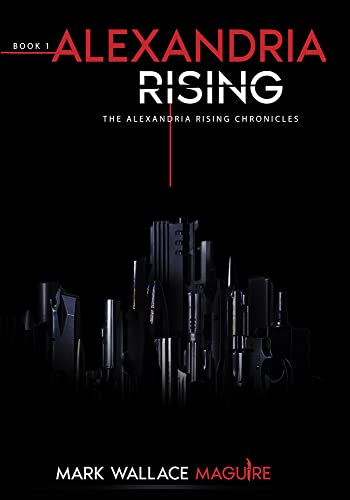

 In a race against time, cardiologist Jennifer Hamilton is caught between her mother’s dying wish and taking the risk of a lifetime with Jackson Montgomery. He’s the man hired to complete the landscaping for her new home; the venue for her upcoming wedding. He’s everything she never wanted in a man, but his lure pulls strong, putting her career on the line…
In a race against time, cardiologist Jennifer Hamilton is caught between her mother’s dying wish and taking the risk of a lifetime with Jackson Montgomery. He’s the man hired to complete the landscaping for her new home; the venue for her upcoming wedding. He’s everything she never wanted in a man, but his lure pulls strong, putting her career on the line…
